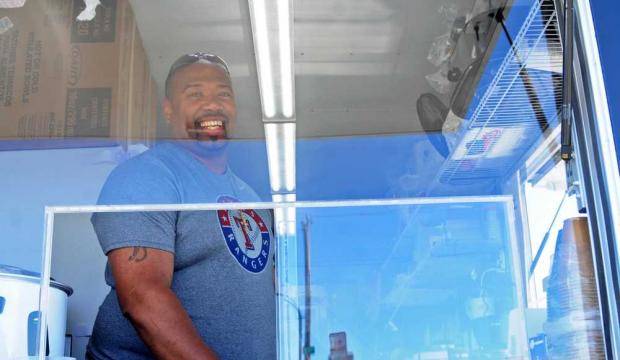As Kenai’s city government more actively attempts to make the summer dipnet fishery a boost to the local economy, beach vendors may be getting some of the attention in the upcoming year.
At their Wednesday meeting, Kenai City Council members informally discussed issuing vendors exclusive permits to sell certain goods, limiting or restricting non-local vendors from the beaches, installing utilities for the use of vendors, and other potential ways to help entrepenuers capitalize on the approximately 20,000 to 25,000 people who come to Kenai’s beaches for the personal-use fishery between July 10 and July 31.
This year Kenai’s administation discontinued the public dipnet work sessions it has traditionally held late in the year, though council members have discussed the 2017 fishery at their regular meetings — most recently during the Dec. 6 meeting in which City Manager Paul Ostrander presented a report on it. In response to questions council members asked at that meeting, Kenai clerk Jamie Heinz put a list of vendor-related discussion questions on Wednesday’s council’s agenda.
Kenai doesn’t presently issue permits specifically for dipnet vendors, but gives them mobile food vendors permits ($120 for a year, according to Kenai’s fee schedule) or transient merchant permits ($25 for a year), and allows them on the beach for the normal dipnet parking fee, Heinz said.
Though the 2017 fishery — which had the fewest participants since 2013, according to the number of parking fee transactions the city recorded — had fewer vendors than usual, past fisheries have usually seen between three and five selling coffee, ice, snacks, firewood, and other merchandise on the beach, Kenai Finance Director Terry Eubank said.
All but one these have done business on the north beach. In addition to drawing fewer people, the south beach has about a mile of sand between its road access and the dipnet area in the mouth of the Kenai River. In 2016 Jason Floyd and his Soldotna-based business Ammo-Can Coffee did business on the south beach by basing his stand at the end of the road and taking orders and delivering coffee on an ATV, but did not return to the south beach this year.
“A lot of the discussions we’ve had relating to promoting a different type of vendor environment down there have been things like, do we allow exclusivity of, say, only one coffee vendor on the north beach?” Eubank said. “And in exchange for that, do we require them to operate all 21 days of the fishery, and for some amount of hours? The intent here is, if there’s three coffee vendors down there, it’s difficult for anybody to make money. … Our goal is to promote business down there, and sometimes to promote business we have to provide some restrictions or protections like exclusivity or things like that, as long as we get things in return.”
Such concessions could include a commitment to remain open on the beach for the entire season, Eubank said. One possible exclusivity system he mentioned could have prospective vendors bid for a permit by offering a percentage of their sales.
“We have to craft this so we just don’t give it to the first person who comes in the door — we should have a competitive process open to all the vendors out there,” Eubank said.
Council member Tim Navarre said he might favor building infrastructure for vendors — such as concrete pads for holding stands or trailers — with grant funds Kenai may have unexpended from other projects.
Another question was whether to restrict beach vending to locals. Heinz said that past vendors have come from as far as Wasilla to do business on the Kenai beach.
“I would prefer that, if the purpose is to promote business for the vendor, that we give local preference,” said Kenai Mayor Brian Gabriel. “I do like that idea, as opposed to having nominal fees for a vendor down there, but if somebody comes in from Wasilla or out of town, I don’t think that’s really a benefit to our local residents.”
Gabriel said he also favored offering exclusivity to vendors.
Though specific proposals for legislation weren’t discussed Wednesday, Ostrander said his administration may “put together a structure that we could then bring to the commissions, and then back to council, to see if we could put something in place for this year.”
“Based on this discussion, and some of the input from council, we could put together a framework of what we’re looking for down there, which I think would include local preference, exclusivity, maybe a competitive process, some on-site requirements for these vendors,” Ostrander said. “And additionally talk about some of these infrastructure improvements that grant funding might allow us to make. And I think that infrastructure should be multi-use — in other words, they certainly could be utilized to support the personal use fishery, but the city would benefit the other 11 months of the year as well.”
Reach Ben Boettger at ben.boettger@peninsulaclarion.com.

